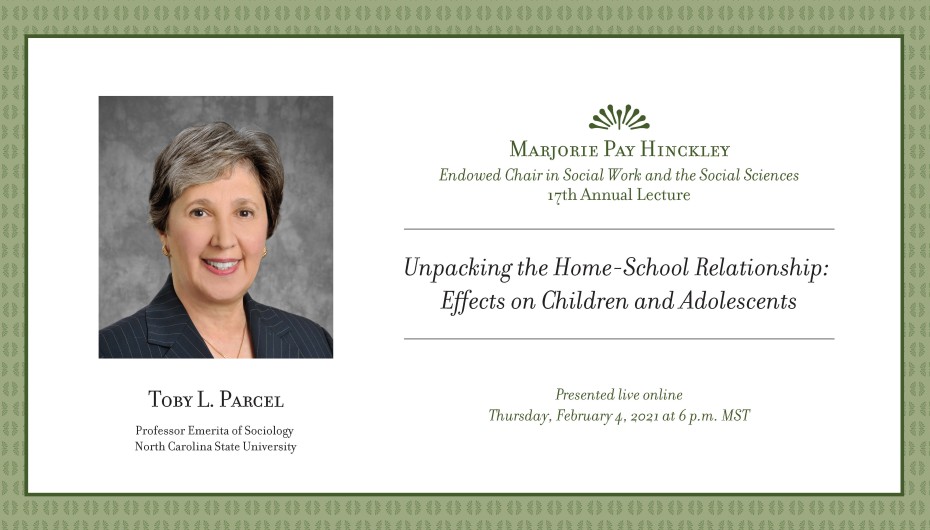
The 17th annual Marjorie Pay Hinckley lecture on Feb. 4 focused on how school and family life affect child development.
Toby L. Parcel, a North Carolina State University professor, said family and school constructs influence one another in a child’s success.
A strong family life can benefit a child’s academic success and school life can be a replacement when home life is not as profitable, she said. However, studies found that ultimately there was no replacement for a well balanced home life.
“One of the things concluded after many years of study, many data sets, thousands of cases, thousands of respondents, is that family characteristics were virtually almost always more powerful than school characteristics in affecting these (developmental) outcomes,” Parcel said.
Through her research she also learned that bonds between parents and children last long after they are established. Although bonds at school are helpful under some conditions, those ties do not last very long thereafter.
Parcel discussed some of the family and school factors influencing child development. These include cognitive and financial resources, social behavior and conflict between family and school.
One way to support a child’s cognitive progress is through resources at both school and home. “Home environments where there are ample cognitive resources and where parents are warm and supportive are important for achievement in mathematics,” she said.
Children with caring teachers and mothers with higher levels of cognitive resources receive an extra boost in mathematics achievement, she added.
Another factor in child development is social behavior. “When social behavior is weak in elementary school that can inhibit cognitive attainment later,” Parcel said. When parents know their children’s location and know their friends, the parents’ ties to school increase. This helps the child participate more in school.
Parent’s jobs become more difficult when school and family life conflict. This is because the parents don’t have support from schools. Outcomes of school and family conflict include a decline in a child’s learning, disruption in friendships and severed ties between school and parents, she said.




